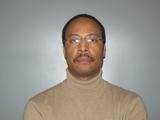Witness Testimony Complete in Edouard Trial
By Clint Brown
Tuesday's session of the trial of Patrick Edouard, former pastor of Covenant Reformed Church in Pella, saw the conclusion of Edouard's cross-examination by prosecutors and also a pair of expert witnesses with psychology backgrounds. Edouard is being charged with three counts of third-degree sexual abuse and four counts of sexual exploitation by a counselor or therapist. He allegedly forced sexual contact on at least three women while serving as the minister from 2003-10. Edouard commented during his testimony on Tuesday that if he had not been caught the affairs mentioned would still be ongoing. When asked about investments he had made with money that was given as gifts from one of the victims. Edouard claimed to not recall exact details of the investments he made and believed that much of the money was lost when the market took a downturn during the time of the affairs. When asked about specify details about conversations he had with victims, sexual and also other matters, Edouard, again, couldn't remember details of those conversations. Details Edouard gave to the court regarding where sexual activities would occur contradicted what the victims had told the court. Edouard told the court this each of the relationships had ended prior to his resignation with the church. Although he as unsure of exact dates and lengths of each relationship. He was able to give the court somewhat of a broad estimate length of each relationship. During redirect questioning from the defense, Edouard stated that his wife, Grace, was never brought up to the victims during the relationships that were going on and did admit he received gifts from some of the victims during that time. Before the defense rested, they called Hollida Wakefield, M.A., to the stand. Wakefield is a a licensed psychologist in Minnesota and has provided consultation with attorneys and forensic services in the past with areas of expertise in False allegations of sexual abuse among others. Wakefield told the court she has appeared in over 200 cases and has testified in many of those. She also told the court that she was familiar with false reports of rape and she stays up to date on research on the subject. Wakefield commented that there is a consensus that eight percent of the cases dealign with rape are falsely reported. "We know it happens," she said. She mentioned various reasons and motivations for a person to falsely report rape – revenge, attention and financial reasoning. Wakefield also stressed that false reporting is on the same as unfound allegations. She also made mention that she is familiar with research and studies on group therapy and how the memory is affected by what is happening currently in a person's life. Memory is being reconstructed all the time she said and that group therapy can be a force to reconstruction of memory, as well as a factor in the reconstruction. "Reconstructed memory is very widely recognized," Wakefield said. "People generally start believing the reconstruction of elements of the memory. It's not that they are lying, it's what they value is true. Memory is a continuous reconstruction." During cross-examination, Wakefield said she has not has any actual clients since 1990 and has been involved with cases involving clergy, but necessarily has not always testified in those cases (both civil and criminal hearings). During redirect questioning from the defense, Wakefield said that memory can be reconstructed in other ways than just group therapy and there more meetings that take care during the therapy the more likely memory gets reconstructed, although memory does not always become reconstructed just because of group therapy. As a rebuttal witness, the State of Iowa, called Gary Schoener to the stand. Schoener is a licensed psychologist from Grand Rapids, Minn., who offers consulting and evaluations of both victims and offenders, dealing most with community psychology as he stated. Schoener also commented that he has a history of working with sexual misconduct cases by individuals, including clergy, and has been all over the world speaking on clergy misconduct and professional boundaries. Schoener commented that reconstructed memory is a shift in some fashion of another in memory, but does not mean it is less accurate and that a memory could become much clearer after the shift. He said that a false report comes from an inaccurate memory. Schoener also said that group therapy, in his opinion, help normalize the experience the victim may be going through and helps them feel reassured and comfortable. Group therapy has advantages of being supportive function he said and offers reassurance to the victim as they sometimes blame themselves for what happened. Schoener did say that other incidents, other than group therapy, could effect reconstructed memory, however re-visiting the issue outside of the group would not alter the basic concept of the memory, but could alter details of the memory. Following Schoener's testimony, no more witnesses were called to the stand on Tuesday afternoon.
|
.
Any original material on these pages is copyright © BishopAccountability.org 2004. Reproduce freely with attribution.
